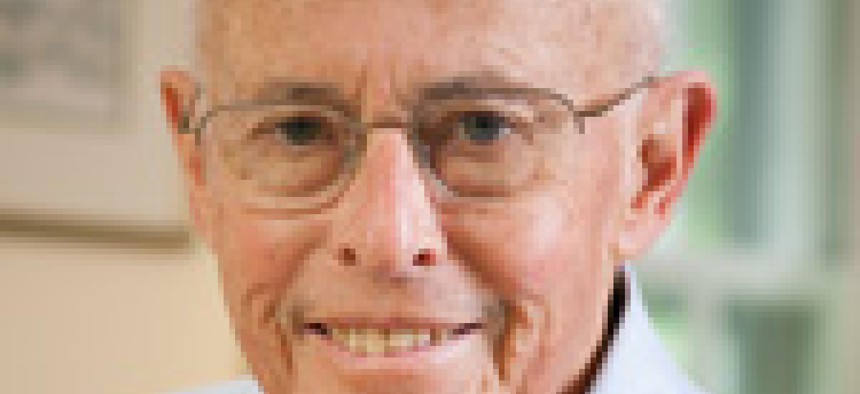Lynn McNulty: The grandfather of federal cybersecurity

Lynn McNulty emphasized security not as a constraint but as an e-government enabler.
Editor's note: Lynn McNulty died on June 4, after our June 15 print edition had gone to press. Read our tribute to him here.
For Federal Computer Week's 25th anniversary issue, we highlight some of the people, policies and technologies that have influenced federal IT. Although it is not possible to include all the dynamic and dedicated people who have been or still are a part of this marketplace, we start with some who have left their mark.
“Visionary” is a word that gets thrown around a bit too easily, but colleagues say Lynn McNulty’s early calls for information security have rightfully earned him that descriptor.
When McNulty began to evangelize about the importance of protecting federal information systems in the 1970s, it was a time of little oversight, accountability or security tools. Few took cybersecurity seriously.
“The attitude was that if information was unclassified and not very sensitive, there was no real need to protect it,” said McNulty, who became a consultant after a 30-year career in government. He often faced that attitude as the State Department’s first director of information systems security, where he created that organization’s cybersecurity policy; as security program manager at the Federal Aviation Administration; and as associate director for computer security at the National Institute of Standards and Technology.
Half the battle in the early days was getting people to understand how security would ultimately benefit them, said W. Hord Tipton, former CIO at the Interior Department and now executive director of (ISC)2, a cybersecurity training and certification organization that McNulty helped launch.
“When you don’t have a catastrophe or breaches or the headlines we have today, it’s much more difficult to get companies and agencies interested in security,” Tipton said. “It gives a new respect to people who had that kind of leadership 25 years ago and the foresight to actually prepare for and predict the problems we deal with today.”
McNulty often got his message across by emphasizing the role of security as an enabler, said Kim Johnson, who worked with McNulty at State and is now senior cybersecurity strategist at the Homeland Security Department.
“He would go to meetings and people would say, ‘I can’t do this because of security,’” she said. “Lynn flipped that argument and always said, ‘You’re going to be able to do online financial transactions or e-mail a sensitive document when you have strong security.’”
McNulty also urged women to pursue technology careers, particularly in cybersecurity, at a time when few considered it a viable employment opportunity, Johnson said. Several women who serve in top government roles today, including Assistant Homeland Security Secretary Betsy Markey, previously worked with McNulty.
Now cybersecurity professionals are part of a separate, distinct career field, a designation McNulty always supported. “I often predicted that we would reach this level, and it has now become true,” he said.


